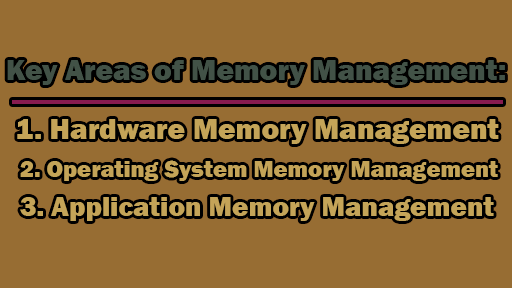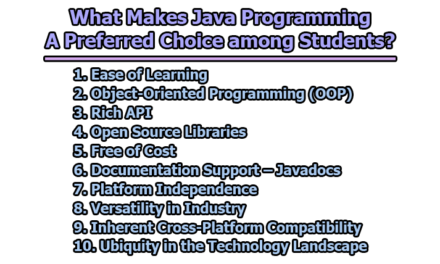Memory management is a necessary aspect of computer systems that involves the organization and optimization of a computer’s memory resources. In the realm of computing, memory refers to the temporary storage space used by a computer to store data and execute programs. Efficient memory management is crucial for the smooth operation of a system, as it directly impacts performance, responsiveness, and overall user experience. In this article, we will explore memory management and key areas of memory management.
What is Memory Management?
Memory management refers to the systematic control and coordination of a computer’s memory resources to optimize the execution of programs. It involves allocation and deallocation of memory space, ensuring efficient utilization and preventing issues like memory leaks.
Example: In an operating system, when a user launches a program, memory management ensures that the required memory space is allocated for the program to run. Subsequently, when the program completes its execution or is closed, memory management deallocates the used memory, making it available for other programs. This prevents the system from running out of memory and enhances overall performance.
Key Areas of Memory Management:
Memory management, considered one of the most intricate fields in computer science, encompasses various techniques aimed at enhancing its efficiency. The three primary areas of memory management include:
1. Hardware Memory Management: This area is primarily concerned with the management of physical hardware components that store and provide quick access to data. Key components include Random Access Memory (RAM) and cache memory.
RAM is volatile memory used by the CPU to store actively running programs and data. Cache memory, often smaller but faster than RAM, temporarily stores frequently accessed data for quicker retrieval. Hardware memory management ensures that data is readily available for processing, contributing significantly to the overall speed and responsiveness of the computer system.
2. Operating System Memory Management: Operating systems employ memory management techniques to allocate, track, and deallocate memory for various processes and applications.
In a multitasking environment, the operating system must efficiently distribute memory among multiple running programs. Virtual memory, a key concept, allows the system to use a combination of RAM and disk space, simulating a larger memory space than physically available. Operating system memory management ensures that each program has the necessary resources for execution while preventing conflicts and resource exhaustion.
3. Application Memory Management: Application memory management involves the dynamic allocation and deallocation of memory within individual programs or applications.
This area ensures that programs use memory efficiently by allocating space for data structures and program objects during execution. It also handles the recycling of memory when certain data is no longer needed. Effective application memory management is crucial for preventing memory leaks (unreleased memory) and optimizing the overall performance of individual programs.
In conclusion, memory management plays a pivotal role in the efficient functioning of computer systems, influencing their speed, reliability, and overall performance. The careful orchestration of memory allocation, deallocation, protection, and other key areas ensures that a computer’s resources are utilized optimally, promoting stability and responsiveness. As technology advances and computing systems become more sophisticated, the need for robust memory management becomes increasingly paramount. A well-implemented memory management system not only enhances the user experience but also contributes to the overall reliability and effectiveness of modern computing environments.

Library Lecturer at Nurul Amin Degree College










